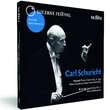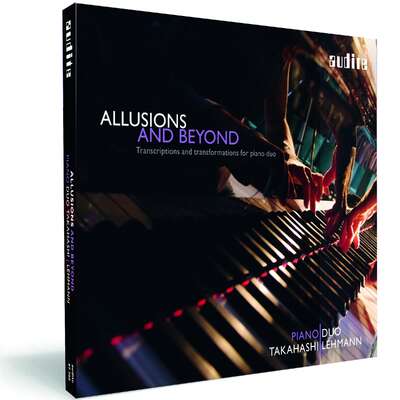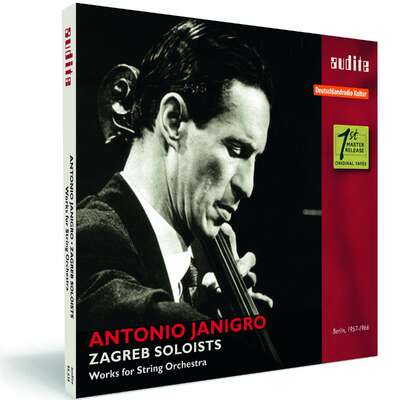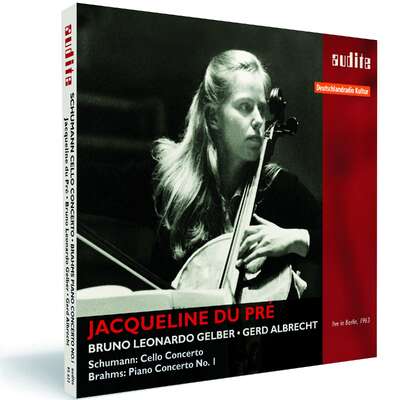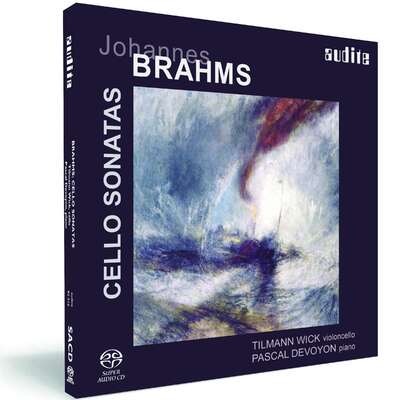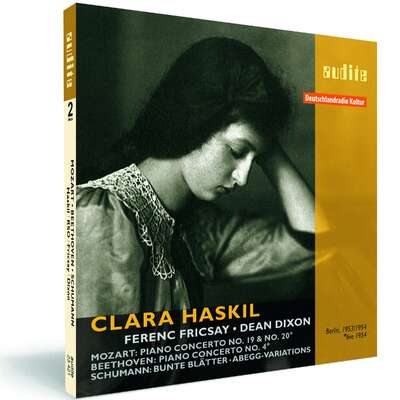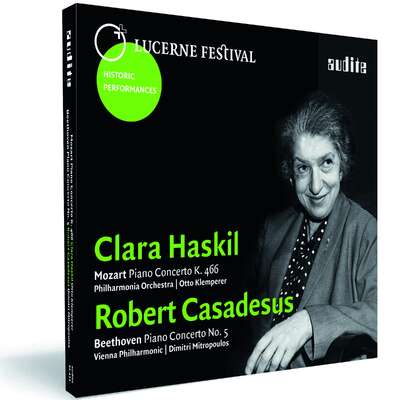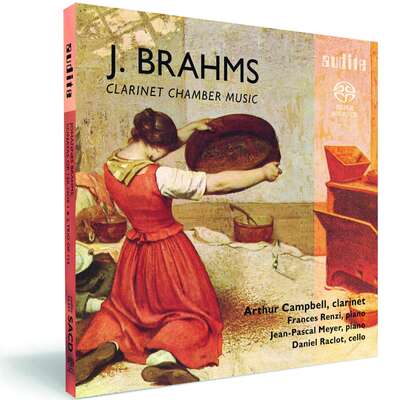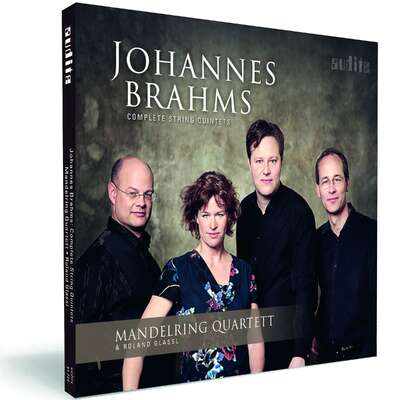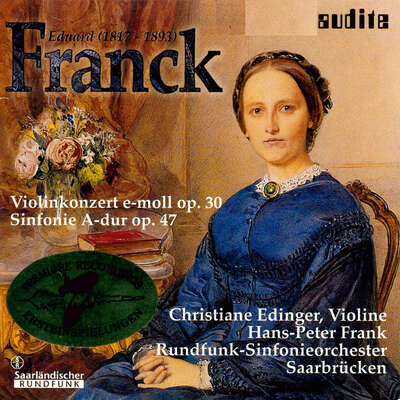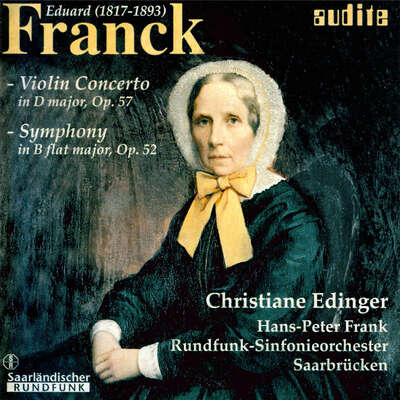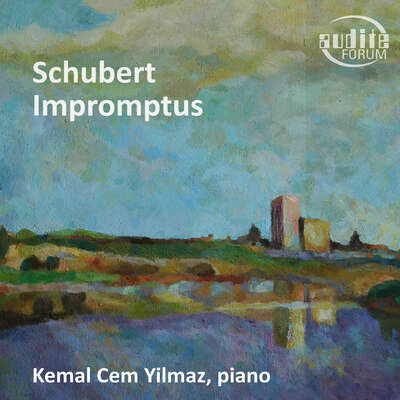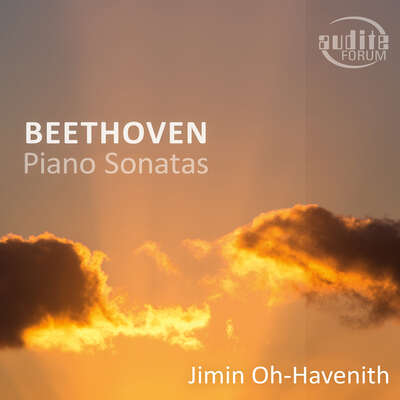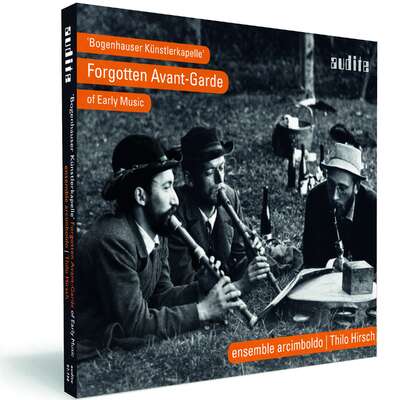
Absolute faithfulness to the musical text and youthful vigour right up to old age: Carl Schuricht (1880-1967), one of the last representatives of the generation of old German conductors during the post-war decades, focused on clear structures rather than romantic pathos or personal eccentricity. These two Lucerne live recordings demonstrate the compelling persuasiveness of his inspired objectivity, especially when performing alongside the celebrated Mozart interpreter Robert Casadesus, whose choice of tempi is particularly striking.more
"[...] this truly is artistry of the highest order." (Gramophone)
Details
|
Carl Schuricht conducts Mozart & Brahms
LUCERNE FESTIVAL Historic Performances, Vol. XI |
|
| article number: | 95.645 |
|---|---|
| EAN barcode: | 4022143956453 |
| price group: | BCB |
| release date: | 19. May 2017 |
| total time: | 68 min. |
Bonus Material
Informationen
January 8th, 2017 marked the 50th anniversary of the death of Carl Schuricht. This release of two live recordings made in 1961 and 1962 pays tribute to a renowned conductor who was only to enjoy great international fame in his old age - as one of the last representatives of the generation of old German conductors, and as a master of the classical and romantic repertoire.
"Neither recreating a façade nor exposing feelings" was how Carl Schuricht once summarised his artistic credo. These two Lucerne live recordings document the compelling persuasiveness and the intensity that Schuricht's interpretational style - his tremendously inspired objectivity, entirely at the service of the music - could develop: in Mozart's final Piano Concerto, K595 in B flat major, Schuricht proves to be a sensitive accompanist. Together with the French pianist Robert Casadesus he manages to strike the distinctive tone of this concerto between simplicity and noblesse, innocence and wisdom, buffa and elegy. (A few days later, the two also performed the work at Salzburg; that live recording has been issued as part of the "Salzburg Festival Documents".) Another interesting comparison is afforded by Schuricht's Lucerne performance of Johannes Brahms' Second Symphony with the Vienna Philharmonic, with whom he had also made a studio recording of the same work nearly a decade earlier, in 1953, for Decca. Whilst he remains faithful to the musical text, Schuricht demonstrates a strikingly free approach to the music - in the dynamics and tempi, in the refinement of the instrumental blend - in his Lucerne interpretation: much subjectivity can be detected in his objectivity, and there is no hint of the conductor's old age.
The 32-page booklet in three languages provides extensive background information on Carl Schuricht and his relationship with the Internationale Musikfestwochen in Lucerne, and also features photos from the festival archive, published here for the first time.
In cooperation with audite, LUCERNE FESTIVAL presents the "Historic Performances" series featuring outstanding concert recordings of artists who have shaped the festival throughout its history. The aim of this CD edition is to rediscover treasures - most of which have not been released previously - from the first six decades of the festival, which was founded in 1938 with a special gala concert conducted by Arturo Toscanini. These recordings have been made available by the archives of SRF Swiss Radio and Television, which has broadcast the Lucerne concerts from the outset. Painstakingly re-mastered and supplemented with photos and materials from the LUCERNE FESTIVAL archive, they represent a sonic history of the festival.Reviews
Audiophile Audition | January 6, 2018 | Steven Ritter | January 6, 2018 | source: http://www.audau...
Best Classical of 2017
Recommendations by Steven Ritter
Grand music-making defines these two concerts led by veteran Carl Schuricht.<br /> Mehr lesen
F. F. dabei | Nr. 26/2017 vom 23. Dezember bis 5. Januar | December 23, 2017 CD-Tipps
Unbedingte Werktreue und jugendlicher Elan bis ins hohe Alter: Carl Schuricht [...] setzte auf klare Strukturen statt auf romantisches Pathos oder persönliche Exzentrizität – zwei Live-Aufnahmen aus dem Kunsthaus LuzernMehr lesen
Fanfare | October 2017 | James A. Altena | October 1, 2017 | source: http://www.fanfa...
As readers of this magazine most likely already know from my previous reviews of two major collections of his recordings by SWR, I am an admirer ofMehr lesen
“Unpredictable” turned out to be a good descriptor for both performances, preserved in clear mono sound that is tilted somewhat toward the treble frequencies. The Mozart looks forward with almost uncanny prescience to certain aspects of recent HIP practices. While the booklet provides no information on this count, my ears tell me that the Swiss Festival Orchestra was (at least for this performance) a body of reduced size from a full-scale modern symphony orchestra. Textures are transparent and light as a soap bubble; articulation is crisp and pointed; tempos are sprightly though not rushed. Casadesus is at one with Schuricht; he uses virtually no pedal, and his fleet-fingered touch brings his modern instrument as close to the realm of the pianoforte as is possible to do. This is Mozart of great elegance, but (unlike Schuricht’s live concerto performances with Clara Haskil) chary of the weight and shadows of emotional depth. I tremendously admire the execution, without being entirely won over by the interpretation.
I was previously prepared for Schuricht’s potential idiosyncrasy in Brahms by a 1953 performance of the First Symphony with the Orchestre de la Suisse Romande (Archiphon, nla), which has the most eccentric rendition of the finale of that work I think I am ever likely to hear. For the Second Symphony, my previous exposure was his 1966 performance with his longtime base ensemble, the Stuttgart Radio Symphony, and his 1953 studio recording with the Vienna Philharmonic for Decca. The Stuttgart performance is one of great autumnal ripeness, with very relaxed tempos throughout. This 1962 outing with the Vienna Philharmonic, by contrast, is far more impulsive, belying the work’s reputation as Brahms’s “Pastoral.” Every movement is up to a minute faster; but even more striking is the sense of underlying tension and unsettled waywardness. (Although its studio predecessor is slightly faster yet, it is characterized instead by far greater equipoise and serenity.) String passages have a febrile edginess; brass chords are far more prominent and given an almost snarling edge. Portions of the first movement development section bristle with nervousness; the normally wistful second movement suddenly turns stormy and even menacing at the 4:00 mark; the scherzo is more jumpy than bucolic; the finale is almost defiantly punched out at points. The audience bursts into enthusiastic applause at the close; I am far less sure what to make of it all. I admire the responsiveness and razor-sharp execution of the Vienna Philharmonic, but this simply is not how I customarily hear this work.
The two easiest types of reviews for a critic to write are those for performances that are either truly great or truly awful. Much harder to compose are those for performances that are either solid but not outstanding, or are very good but still seem to have something essential missing. By far the hardest kind of review to write, though, is one for performances where the interpreters provide top-notch executions that are at odds with the critic’s preconceptions or preferences, in ways that he or she cannot readily resolve. That is the situation here. I remain intrigued but unsettled by what I hear—interpretations far too thoughtful and well played to set aside, but ones that lie outside of my usual ambit. I have sought to give objective accounts of these two performances, so that readers can make their own judgments. With a cautionary yellow flag, strongly recommended to those who believe they might find these approaches appealing.
Fanfare | October 2017 | Jerry Dubins | October 1, 2017 | source: http://www.fanfa...
Emanating from performances at two Lucerne Festivals on 8/19/1961 (the Mozart Concerto with Casadesus) and 9/8/1962 (the Brahms Symphony with theMehr lesen
Fifteen months after Casadesus made this appearance in Lucerne—and presumably the one in Salzburg, both with Schuricht—the pianist sat down in Cleveland’s Severance Hall in November 1962 to record Mozart’s final concerto with the Columbia Symphony Orchestra under the baton of George Szell; and as the reader is sure to know, that collaboration was not a one-off. Indeed, between 1959 and 1962, Casadesus teamed up with Szell to record all but a handful of Mozart’s piano concertos beginning with No. 12. Conspicuously missing from the later concertos are the Nos. 19 and 25. Some of concertos were recorded with members of the Cleveland Orchestra and others with the Columbia Symphony Orchestra; and back in the heyday of LP, I collected all of them. Casadesus and Szell, in fact, were my introduction to Mozart’s piano concertos, and I still have a fondness for those recordings.
The timings between this Casadesus/Schuricht and the Casadesus/Szell performances are remarkably close: 13:14, 8:07, 8:07 vs. 13:22, 8:49, 8:05. Only in the second movement do Casadesus and Szell adopt a more leisurely tempo. But aside from the timing similarities, I find that I actually prefer this Casadesus/Schuricht reading. Where Szell feels earthbound with a strict adherence to the beat, Schuricht seems to take wing with more flexible phrasing that lends a freer, more lyrical character to the music. The violins, in particular, sound like they’re floating, and this, in turn, prompts playing of pearl-like beauty from Casadesus. There’s a gentle joy in the third movement that I don’t hear in the not faster but harder-driven Szell version. Given the vintage and venue of the recording, the sound is excellent.
I’m not as happy with the Brahms Symphony. The main problem lies with the recording, which, though it comes from the same venue a year later, sounds bottom-heavy and murky. I’m guessing that the larger contingent of players in the Vienna Philharmonic, compared to the chamber-sized Swiss ensemble for the Mozart, posed challenges that the microphones and recording equipment weren’t entirely able to resolve.
Setting that aside, Schuricht’s performance of Brahms’s Second Symphony is quite interesting, which is not necessarily to say that I find it to my liking. For one thing, it stands in rather stark contrast to some recent versions in the matter of tempo. As I and others have noted, tempos in Brahms’s works, with exceptions, of course, have tended towards a gradual slowing over the past 40 or 50 years. Schuricht confirms that perception with a reading of the score that’s nothing if not bracing. But it’s not the conductor’s pacing per se that gives me pause. Rather, it’s his somewhat aggressive approach, which treats more rhythmically vigorous and dramatically heightened passages with explosive accents and notes cut short of their full metric values. In the past, I may have complained that some conductors are too keen on smoothing out the edges, especially in this score, which has often been called Brahms’s “Pastoral” Symphony. But Schuricht seems to err in the opposite direction and in so doing alters the complexion of the piece and its lyrical impulses.
A Carl Schuricht discography at carlschuricht.com/SchurichtCD.htm, so up to date that it includes the current release, lists a number of recordings of Brahms’s Second Symphony by the conductor with the Vienna Philharmonic on Decca (1953), the ORTF on Altus (1963), the Stuttgart RSO on Hänssler (1966), and a number of others. I reviewed the Stuttgart/Hänssler CD in 29:1, and said of it then that the performance, only a year before the conductor’s death, “does not dawdle.” “If anything,” I continued, “I would have preferred a slightly slower pace for the Adagio, which could have benefited from a bit more expansive phrasing and shaping.
If that performance was a bit too fast for my taste, consider this earlier one with the Vienna Philharmonic vs. the later one with the Stuttgart Radio:
VPO (1962): 15:15, 9:06, 5:07, 9:26 = 38:54
RSO (1966): 16:20, 9:22, 5:35, 10:12 = 41:29
Schuricht actually did slow down considerably in his last days, but even then I noted that the RSO reading felt a bit pressed and impatient to me. If you prefer your Brahms Second not to trot along too slowly, but you don’t want it to gallop either, I’d recommend Schuricht’s final RSO recording on Hänssler over this 1962 VPO version. Besides, it’s in stereo and the sound is much better. The Mozart with Schuricht and Casadesus, however, is a winner.
Record Geijutsu | 2017.9 | September 1, 2017
Japanische Rezension siehe PDF!Mehr lesen
Gramophone | September 2017 | Rob Cowan | September 1, 2017 Schuricht and Casadesus at the Lucerne 'Festival
First to clarify: this is not the same K595 from Robert Casadesus and Carl Schuricht that appears on Orfeo (C536 001B), though the two are very alike,Mehr lesen
The Brahms is mellower than its predecessor, less volatile too. But there are moments that are unforgettable: the gently nudged strings beneath the solo horn at 12'23" into the first movement; the glowing blend of lower strings and brass for the second movement's second subject; and, most magical, the return of the outer section of the Allegretto grazioso (from 3' 15 "), so much more gentle than on the older version. Towards the close of the finale, from 7' 55 ", Schuricht gives precedence to the lower strings' motif, which greatly intensifies the build-up to the coda. The Decca version is similar but nowhere near as effective. Both works are captured in fine mono sound. And if you want to investigate a compelling follow-up, try Casadesus and Schuricht with the Orchestre National de la RTF in Brahms's Second Concerto (on INA) – not perfect by any means, but consistently gripping.
www.concertonet.com | 08/21/2017 | Sébastien Gauthier | August 21, 2017 | source: http://concerton...
Ces deux albums nous ramènent quelques décennies en arrière en nousMehr lesen
www.artalinna.com | 2 August 2017 | Jean-Charles Hoffelé | August 2, 2017 | source: http://www.artal... Miroir Mozart
Le ton si enjoué, la légèreté du geste de Carl Schuricht dans l’ultime Concerto de Mozart rencontre si pleinement le piano simplissime de Robert Casadesus, un tel soleil mélancolique s’infuse entre eux, les faisant respirer dans les mêmes vibrations de couleurs et de sons !Mehr lesen
Audio | 8/2017 | Otto Paul Burkhardt | August 1, 2017
"Zappelmeister" konnte er nicht leiden: Carl Schuricht (1880-1967) war ganz das Gegenbild exaltierter Selbstdarsteller am Pult. Ein Dirigent alterMehr lesen
BBC Music Magazine | August 2017 | Erik Levi | August 1, 2017
Although brass overpower strings in some orchestral tuttis, Schuricht's Brahms is wonderfully fluid. Worth hearing for the Vienna Philharmonic'sMehr lesen
Musik & Theater | 07/08 Juli/August 2017 | Andrea Meuli | July 1, 2017 Von großer Natürlichkeit
Mozarts letztes Klavierkonzert mit dem Pianisten Robert Casadesus: singend, klar, das Orchester, klassizistisch hingetupft der Klavierpart. Ruhig fließend auch der Brahms mit den Wienern, durchaus jedoch mit eigenwilligen Farbgebungen und Temporückungen.Mehr lesen
deropernfreund.de | Juli 2017 | Prof. Egon Bezold | July 1, 2017
Beethoven und Bruckner waren seine Lieblinge. Die Klarheit des Musizierens pflegte er auch noch im hohen Alter, ebenso die Lebendigkeit mit der er dasMehr lesen
In Mozarts B-Dur Konzert KV 595, Mozarts letztem Werk der Gattung „Klavierkonzert“, liebäugelt der Pianist, der Franzose Robert Casadesus, keinesfalls mit der Rolle eines Schönklanganbeters, sondern korrespondiert mit dem Swiss Orchestra mit akzentuiertem, geschmackvoll artikuliertem Spiel als gleichgestimmter Partner mit den facettenreich leuchtenden Bläsern und akkurat agierenden Streichern des Orchesters. In dieser fein dosierten Mischung aus optimaler Haltung und wehmutsvoller Stimmung spielt der Pianist seine elegant getunten Klänge, gibt so dem harmonischen Schatten die ganze Farbigkeit. Auch werden die sprudelden Passagen keinesfalls einfach beiläufig etüdenhaft abgespult. Vielmehr die fein gerundeten Legati in atmende fließende Linien gefasst. In puncto Spielwitz und interpretatorischen Charme eine rhetorisch belebte, durchwegs pointierte Kommunikation zwischen dem Solisten und den wendig begleitenden Musikern des Schweizer Orchesters.
Die Aufnahmetechnik (l961 und 1962) gibt den musikalischen Ereignissen (live eingespielt bei Internationalen Musikfestwochen Luzern) klares Profil. Das instruktive Booklet stammt aus der Feder von Wolfgang Stähr.
www.pizzicato.lu | 27/06/2017 | Alain Steffen | June 27, 2017 | source: https://www.pizz... Für Sammler und Liebhaber
Nicht jedes Tondokument ist auch historisch wertvoll. In den Archiven des Schweizer Radios schlummern sicher weitaus bessere und interessantereMehr lesen
Robert Casadesus spielt das Konzert sehr schön und wird von Carl Schuricht sehr präzise begleitet. Ein gutes Konzert, aber sicherlich kein Mitschnitt für die Ewigkeit. Auch die 2. Symphonie von Johannes Brahms mit den Wiener Philharmonikern wird die Diskographie nicht auf den Kopf stellen. Schurichts Dirigat ist recht traditionell, aber durchaus spannend und klangorientiert.
Von beiden Werken gibt es unzählige und auch technisch bessere Aufnahmen, so dass diese Luzerner Festival-CD wirklich nur etwas für Sammler und Liebhaber ist.
Carl Schuricht doesn’t present outstanding performances neither of the Mozart Concerto nor of the Brahms Symphony, so that this CD is a sound document which will bring some pleasure just to collectors and Lucerne Festival aficionados.
Schwäbische Zeitung | Trossinger Zeitung 12 Jun 2017 | man | June 12, 2017 | source: http://www.press... Erinnerung an Carl Schuricht
[...] die 2. Brahms-Sinfonie mit einem zauberhaften dritten Satz, sehr ausgehört, farbig und forsch [...]Mehr lesen
Audiophile Audition | June 8, 2017 | Gary Lemco | June 8, 2017 | source: http://www.audau... Grand music-making defines these two concerts led by veteran Carl Schuricht
Casadesus could be startlingly brisk in Mozart concertos — as in his collaborations with George Szell — but here Casadesus chooses to provide animation informed by tender care for the ornaments, runs, and calculated filigree that suffuses this magnificent concerto.Mehr lesen
News
As readers of this magazine most likely already know from my previous reviews of...
Emanating from performances at two Lucerne Festivals on 8/19/1961 (the Mozart...
Ces deux albums nous ramènent quelques décennies en arrière en nous...
Although brass overpower strings in some orchestral tuttis, Schuricht's Brahms...
"Zappelmeister" konnte er nicht leiden: Carl Schuricht (1880-1967) war ganz das...
Beethoven und Bruckner waren seine Lieblinge. Die Klarheit des Musizierens...
Grand music-making defines these two concerts led by veteran Carl Schuricht
